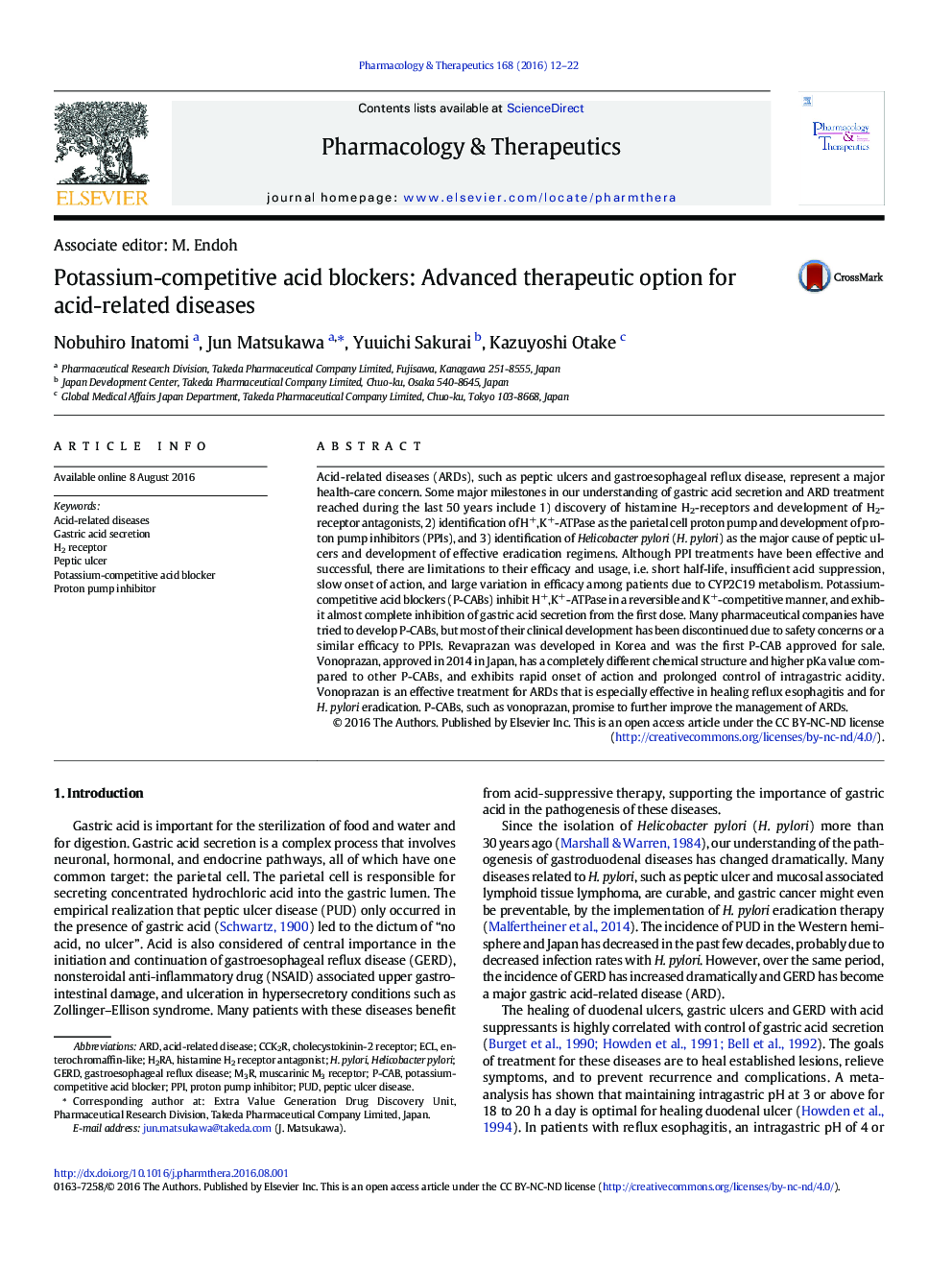| Article ID | Journal | Published Year | Pages | File Type |
|---|---|---|---|---|
| 5557806 | Pharmacology & Therapeutics | 2016 | 11 Pages |
Acid-related diseases (ARDs), such as peptic ulcers and gastroesophageal reflux disease, represent a major health-care concern. Some major milestones in our understanding of gastric acid secretion and ARD treatment reached during the last 50Â years include 1) discovery of histamine H2-receptors and development of H2-receptor antagonists, 2) identification of H+,K+-ATPase as the parietal cell proton pump and development of proton pump inhibitors (PPIs), and 3) identification of Helicobacter pylori (H. pylori) as the major cause of peptic ulcers and development of effective eradication regimens. Although PPI treatments have been effective and successful, there are limitations to their efficacy and usage, i.e. short half-life, insufficient acid suppression, slow onset of action, and large variation in efficacy among patients due to CYP2C19 metabolism. Potassium-competitive acid blockers (P-CABs) inhibit H+,K+-ATPase in a reversible and K+-competitive manner, and exhibit almost complete inhibition of gastric acid secretion from the first dose. Many pharmaceutical companies have tried to develop P-CABs, but most of their clinical development has been discontinued due to safety concerns or a similar efficacy to PPIs. Revaprazan was developed in Korea and was the first P-CAB approved for sale. Vonoprazan, approved in 2014 in Japan, has a completely different chemical structure and higher pKa value compared to other P-CABs, and exhibits rapid onset of action and prolonged control of intragastric acidity. Vonoprazan is an effective treatment for ARDs that is especially effective in healing reflux esophagitis and for H. pylori eradication. P-CABs, such as vonoprazan, promise to further improve the management of ARDs.
